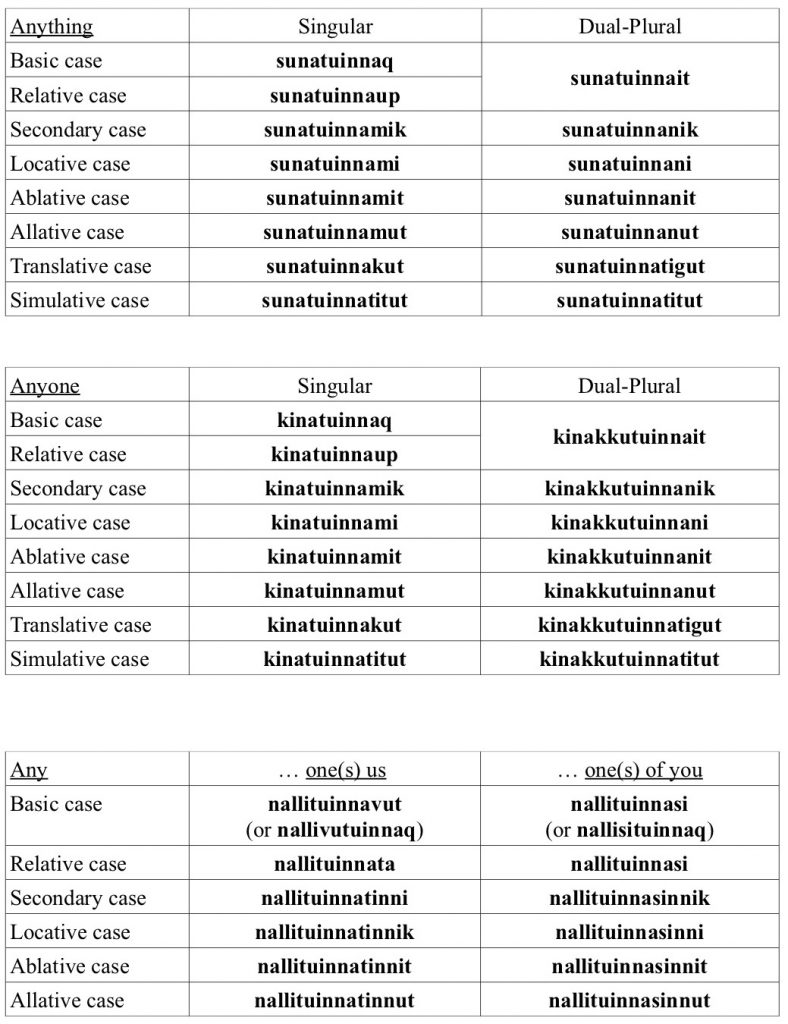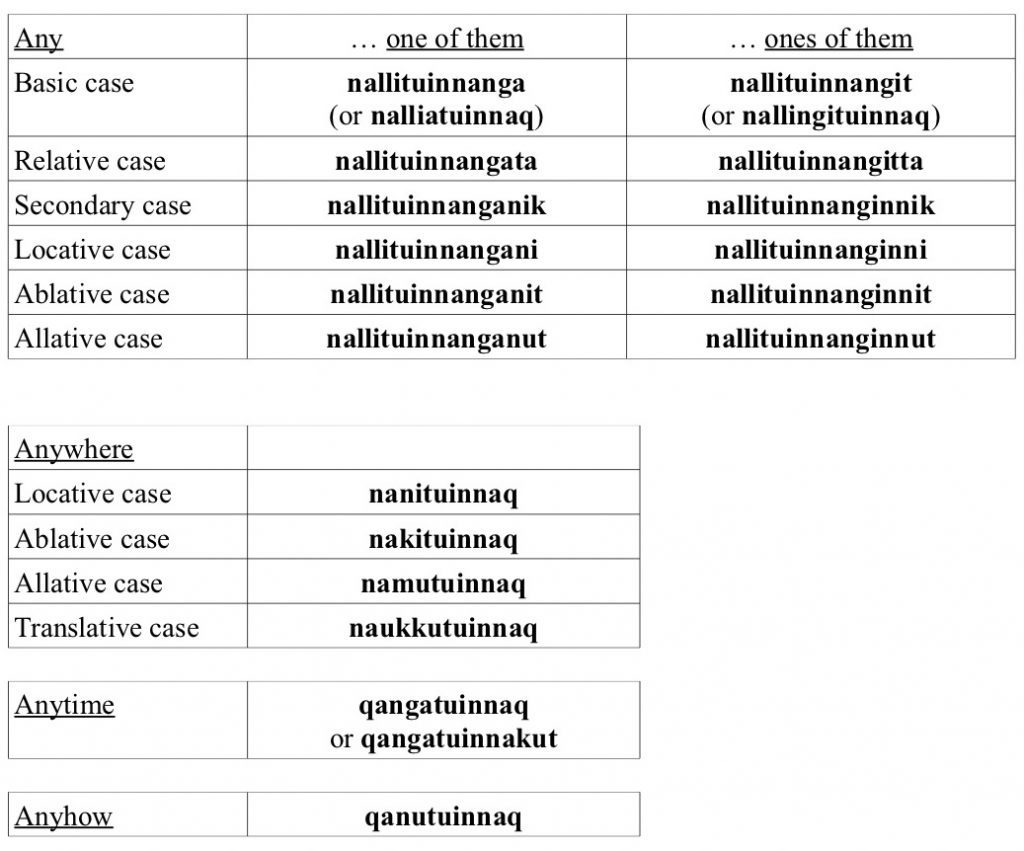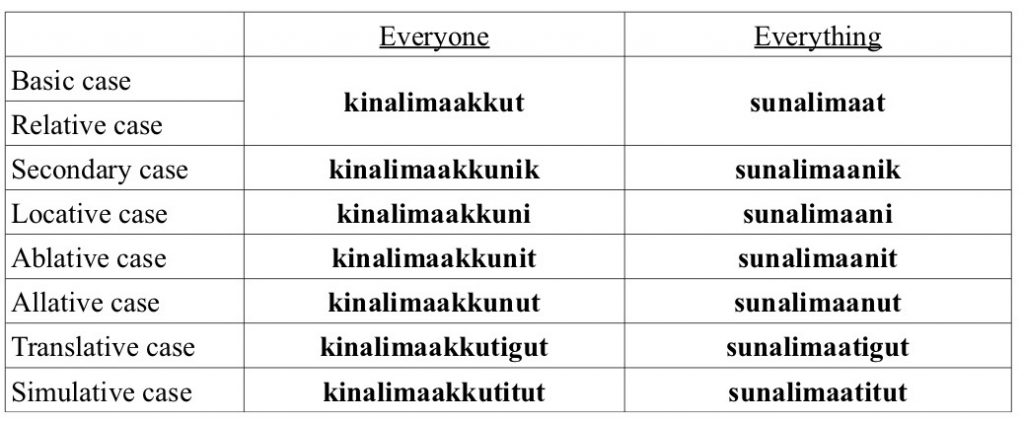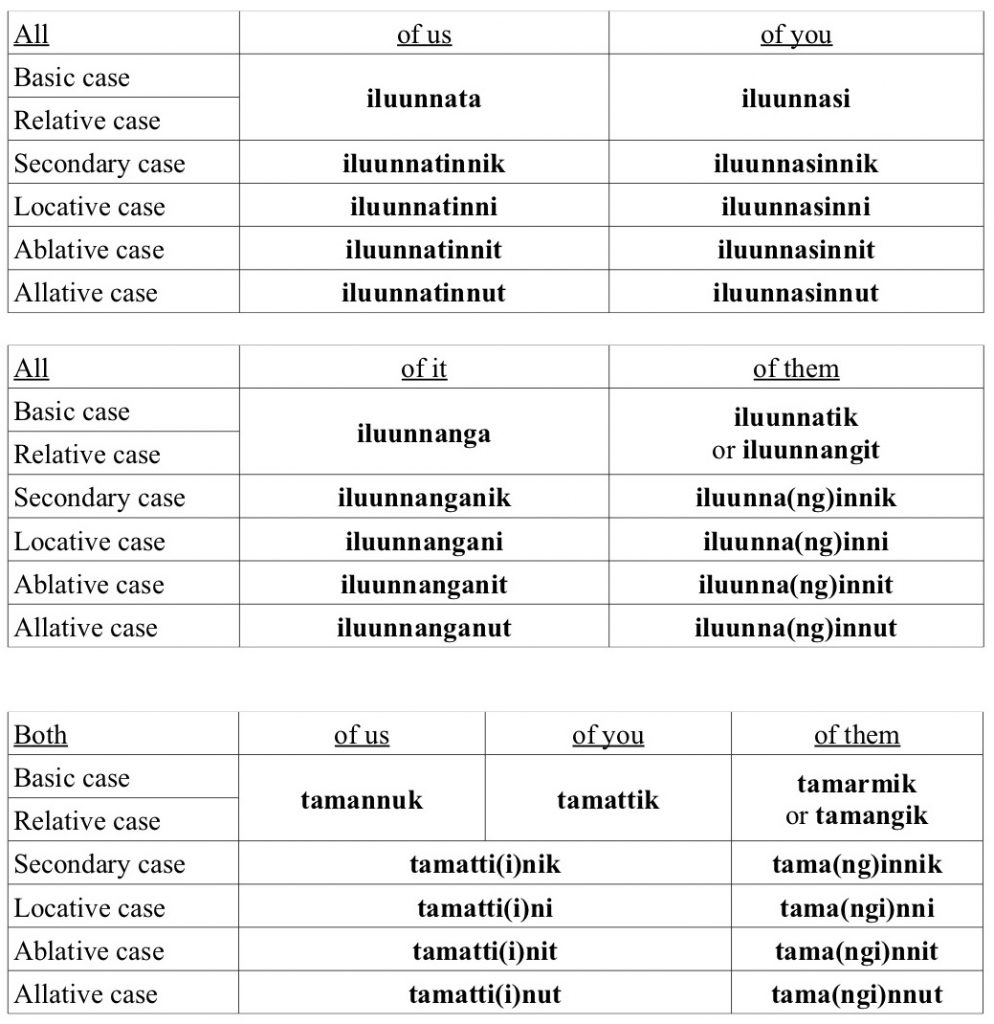Rule #38
There are two main kinds of indefinite pronouns in Inuktitut: ‘free-choice’ pronouns and ‘universal-quantifying’ pronouns.
‘Free-choice’ pronouns are used to express irrelevance of choice. They correspond to ‘any’-indefinites in English.
They are interrogative-based and they always contain /tuinnaq.


‘Universal-quantifying’ pronouns correspond to ‘every’-indefinites in English. They are interrogative-based and they contain /limaaq.


Finally, there are two quantifying pronouns that follow a special pattern:

Indefinite pronouns have intensive variants that contain /tsiaq:
sunatuinnaq → sunatuinnasiaq
kinakkutuinnait → kinakkutuinnasiat
kinalimaakkut → kinalimaatsiakut
sunalimaat → sunalimaatsiat
nanilimaaq → nanilimaatsiaq
iluunnatik → iluunnasiatik
…
Tails can be added to indefinite pronouns:
kinatuinna-li
…
Note that numbers in Inuktitut are nouns, not quantifying pronouns: atausiq-Ø (one unit)
marru-uk (two units)
pingasu-t (three units)
sitama-t (four units)
tallima-t (five units)
pingasu-ujur-tu-t (units that double three units)
sitama-uju-ngngigar-tut (units that do not quite double four units)
sitama-ujur-tu-t (units that double four units)
quli-u-ngngigar-tu-t (units that are not quite ten units)
tallima-ujur-tu-t (units that double five units)
quli-t (ten units)
quli-l-lu atausir-lu (ten units and one unit)
avati-t (twenty units)
avati-l-lu quli-l-lu marru-u-lu (twenty units and ten units and two units)
avati-t marru-uk (two units (of) twenty units)
…
